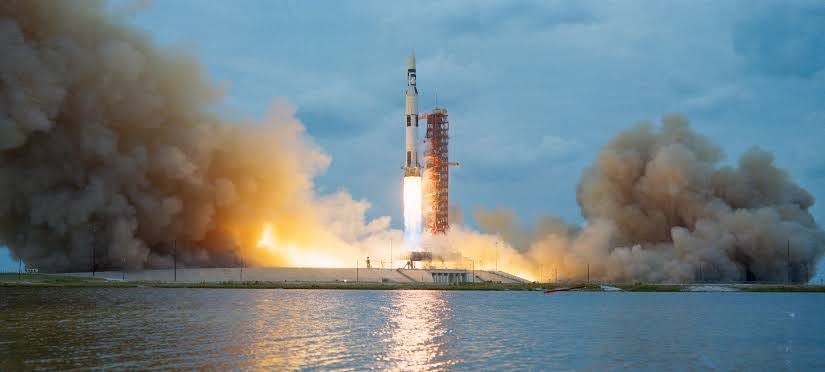May 1973, the headlines inside the chapter
Skylab aloft, cassette clocks, and a boy’s private newsroom
At the Wagga library and at home by the radio, Christian catches a month that is quieter in print, but bright in orbit. Below are the real markers threaded through the scenes, with what happened and why it colours the chapter’s mood.
14 May 1973 ~ Skylab launches
What happened: The United States placed Skylab, its first space station, into orbit. It went up empty, circling alone while the first crew prepared to follow. Early reports noted heat shield issues and a jammed solar array, with fixes planned once astronauts arrived.
Why it matters here: The radio bulletin Christian hears is exact to the moment. Writing a letter to an uncrewed station mirrors his wish to be noticed without interrogation, seen at a distance that still feels safe.
Late May 1973 ~ The first crew prepares to dock
What happened: The first three-man crew trained to rendezvous with Skylab, bring it fully to life, and attempt on-orbit repairs.
Why it matters here: The idea that help is coming, not as rescue but as calm skill, echoes the quiet care in the Civic Centre car park, the lemonade bottle against a bruise, and a lift that stops two houses short.
Cassette culture in the library
What happened: Cassettes and school A/V decks spread fast in 1973. Pink Floyd’s The Dark Side of the Moon, released in March, became ambient weather in youth spaces.
Why it matters here: The ticking clocks and voices of “Time” drift across the stacks as he writes. It is the month’s pulse, not a distraction, but a metronome for courage.
In the archives ~ headlines he rescues to build a life
What happened: Town libraries kept back rooms of bound newspapers and clippings. Christian opens boxes and copies earlier world headlines into a red school scrapbook.
Why it matters here: He is not escaping history. He is learning to author it. Headlines first, story to follow. The boy turns a schoolbook into his own newsroom.
22 Nov 1963 ~ Kennedy shot
A page where the world stops mid-wave. It explains the ache he cannot name when ink turns to shock.1960s ~ Vietnam protests in Australian cities
Marches, batons, banners. In a garrison town these headlines hum under daily life.20 July 1969 ~ Apollo 11
A grainy boot print becomes a lesson in leaving and returning. He titles the page like a promise.1972 ~ Free education promised
A headline that suggests futures. It sits near his note, “If I write the headline, maybe the story will follow.”
School holidays and PE heat
What happened: Autumn break gives way to laps on the oval and a teacher’s clipped provocations.
Why it matters here: Bodies are measured in public, hurts heal in private, and he chooses to write rather than shout. The month’s news is not a rescue. It is a backdrop for making pace and building breath.
Why these headlines deepen the story
May is not full of parades. It is full of orbits. A station circles alone, then welcomes hands that repair rather than punish. A cassette ticks while a boy writes himself forward without leaving his seat. In a back room, he turns other people’s headlines into the bones of his own.




